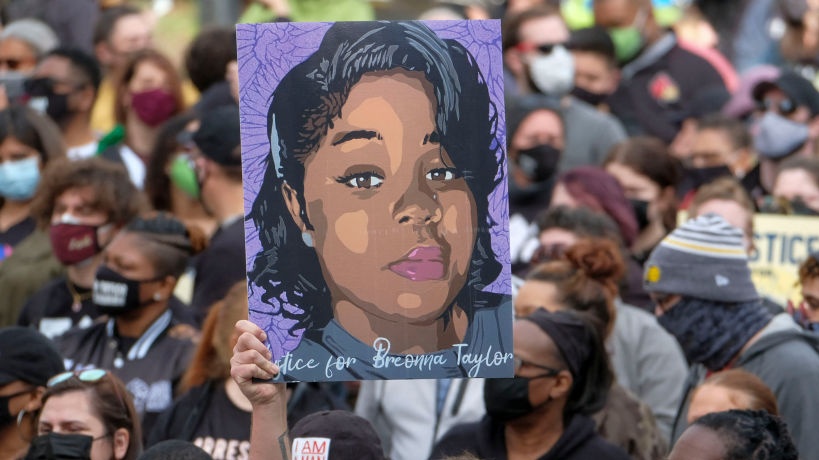Data released by the FBI revealed that at least four Black women and girls in the country were killed each day in 2020.
The agency discovered that an additional 405 killings of Black women and girls took place in the same year, The Guardian reports. Despite the high number of deaths, experts say it's likely an undercount.
The shocking data comes one year after Black Lives Matter protests kicked off in the country as demonstrators called for social and civil justice. The movement was spurred by the killings of George Floyd, Ahmaud Arbery and Breonna Taylor.
After the killing of Taylor inside of her Kentucky apartment, community members reignited the #SayHerName movement, urging local leaders and officials to prioritize the safety of Black women.
According to the African American Policy Forum, the #SayHerName campaign aims to bring "awareness to the often invisible names and stories of Black women and girls who have been victimized by racist police violence, and provides support to their families."
Taylor was gunned down when Louisville officers raided her home searching for a suspect who didn't live at the residence. Following an investigation into the no-knock raid, the attorney general ruled that no charges would be filed for her killing.
Protesters, however, continued their calls for justice and demanded the officers involved be held accountable.
“Black women and girls have been indoctrinated to believe everyone matters but themselves,” Rosa Page, the founder of the advocacy group Black Femicide US, told The Guardian.
Although the number of deaths grew last year during the pandemic, researchers are unsure if the increase is related to domestic violence, which became a concern for politicians as many people were quarantined at home.
United Nations Secretary-General António Guterres commented on the increase in domestic violence, saying that they had "seen a horrifying global surge," as Blavity previously reported.
Ori Monroe, an organizer with Black Femicide US and co-founder of Black Women Lead/Black Femme Fund, told The Guardian that when circumstances “get rough, Black women are the first to be harmed.”
But even before the pandemic, data from the National Crime Victimization Survey revealed Black women were twice as likely as their white counterparts to be confronted by an armed individual, The Guardian reports.
Regardless of the cause, advocates say it's time to address the public safety of Black women and girls, and to determine why they are more susceptible to violence.
“Does the loss of employment force them into circumstances that put them at greater risk of violence and death?” Kimberlé Crenshaw, a Black feminist legal scholar, asked, according to The Guardian. “Does the fact that Black women are disproportionately the head of household and chief economic resource mean that they had to risk everything in order to just survive?”
“There’s never been a moment in our society where there’s been a reckoning with the particular kinds of violence that’s meted out against Black women,” Crenshaw said.
The killings of Black women and girls increased just as the total U.S. murder rate surged nearly 25% last year in the 50 largest cities in the U.S., according to The Wall Street Journal. Black men and boys, however, have the highest overall risk of homicide. In 2020, at least 2,400 additional Black men and boys were killed compared to the previous year.
